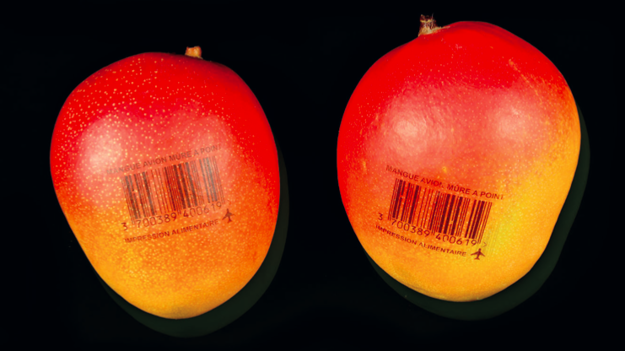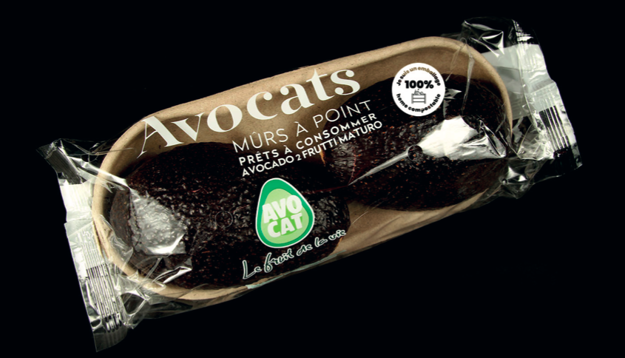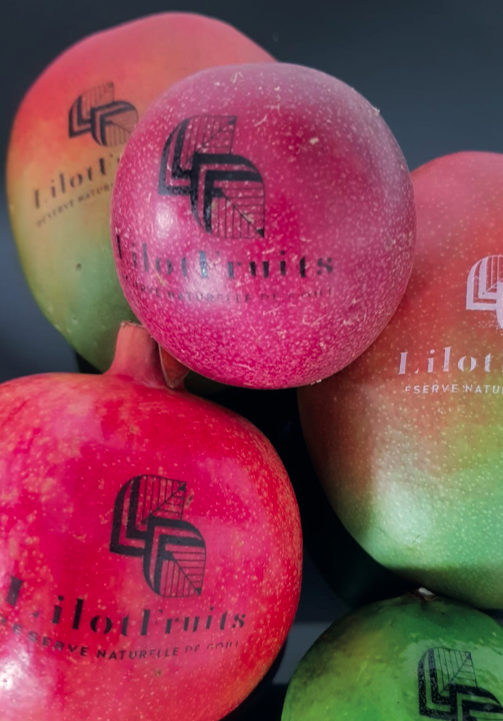According to a study carried out by the Ellen McArthur foundation, “if nothing is done to eradicate plastic pollution, the oceans could contain a ton of plastic for three tons of fish as of 2025. In 2050, the weight of plastic would be heavier than the weight of marine fish.” Faced with this environmental emergency, the Ministry of Ecological and Solidarity Transition co-signed the national pact on plastic packaging, on February 21st, 2019.
The goal is to reach 60% of reusable, recyclable or compostable packaging in 2022 and 100% in 2025.
In the world of exotic fruits and vegetables, the issue of plastic packaging is significant and raises the following question: how, from packaging to labeling, to bring eco-responsible solutions while preserving the integrity and traceability of fresh products?
Today, Capexo makes its contribution through two major innovations in terms of the packaging and labeling of exotic fruits and vegetables. Two years ahead of the official calendar!

Innovation 1: tagging on the exotic fruits and vegetables
This patented process, owned by Capexo for France, allows the tagging with food ink of a barcode, price or any other consumer information, on the skin of almost all fruits and vegetables.
This innovation announces the end of the excessive use of plastic wrappings and stickers for exotic fruits and vegetables, among others.
All exotic fruits and vegetables have a relatively smooth skin, which can be printed on. This is not the case of the pineapple, for example. For avocados with a grainy skin, it is possible but a barcode would not be readable enough to function properly at the cash register. However, printing a price would be possible. Besides, the printing process is adapted to the degree of maturity of the fruit in order to avoid any deterioration.
Food safety guaranteed
The process uses guaranteed and patented food inks. The same ones that are used by the pharmaceutical industry to color pills.
No more markdown at checkout
In stores, printing on the fruits avoids markdown problems at checkout between, for example, an air-shipped mango and a mango shipped by boat, which have a different selling price. With this method, there is no more possible confusion since the barcode or the price appear on each fruit.

Innovation 2: biocompostable packaging for trays
Ready-to-eat fruits, sold in batches, like ripe avocados or air-shipped bananas, need to be packed in a tray for protection and to avoid any markdown at checkout. In order to replace plastic films and trays, recyclable at best, the Capexo biocompostable packaging is made of cardboard from birch wood, from forests exploited in an eco-responsible manner, and wrapped in a protective transparent film also made of birch wood, and heat-welded on a Flow-Pack machine. This makes the tray packaging entirely biocompostable. Biocompostable films from cornstarch already existed.
However, the lack of GMOs in the product is not 100% guaranteed, so Capexo turned away from this option, as a precaution.
Towards home composting
Final consumers can now throw both tray and film in their home compost where they can be naturally degraded, just like other compostable waste. In the absence of home compost, this packaging can be recycled.
Traceability of the tray preserved
The Capexo biocompostable packaging allows for an eco-responsible traceability of the products, with batch number, origin, expiration date and all other information necessary for the consumer, thanks to the use of food ink.
Customer testimony

These innovations are intended for specialized and general food stores, which are clients of Capexo. Sophie Malinas, director of fruit and vegetable purchases at Cora, testified that “in view of the upcoming legislative deadlines on plastic packagings and with a CSR concern, Cora is rethinking the packaging of its products. In fact, since November 2019, all our mangoes shipped by air from Peru, are packaging-free. Barcode and consumer information - ‘ripe air-shipped mango’ and ‘food print’ - are labeled directly on the fruits thanks to the food ink printing process developed and offered by our Capexo supplier. Since we also sell mangoes shipped by boat, this allows us to segment the product and avoid markdown problems at checkout.
For the brand, this innovative process allows us to preserve the mango operating account. And just like for the biocompostable label, also in place in our stores, this puts us in a virtuous approach while presenting new ideas to the consumer. It’s all very positive.”
Interview with François Bellivier, development director at Capexo
 What does environmental innovation represent for Capexo?
What does environmental innovation represent for Capexo?
“When the national pact on plastic packaging was signed in 2019, it had already been a year since we started developing these 2 innovations and their integration to our packaging chains. Like any ordinary citizen, we are sensitive to the tragedy of plastic pollution, especially in the oceans. As an importer of fresh products, we can and must bring alternative solutions to plastic packaging to our retail customers. And at Capexo, we cannot properly speak of the nutritional and taste excellence of our products without worrying about the environmental impact of our packaging.”
Environmental impact also applies to transportation
“Yes, it is important, but we must not forget that it is the entire life cycle of the product that must be taken into account to calculate its carbon footprint. That being said, the exotic fruits and vegetables we import by plane only travel on commercial flights. We never charter freighters specifically for our products. These two packaging innovations are part of a long-standing environmental policy at Capexo. But I would like to insist on the fact that they alone will not solve the issue of excessive packaging. On the other hand, they are contributing to the issue and show that it is the multiplication of solutions adapted to each market that will make it possible to fight efficiently and on a large scale. The food distribution sector is on the front line. The eyes of the consumers are on all the store brands and this is normal. It is up to us to bring solutions to our clients that are ethical and in phase with the future. It is part of the customer service provided by Capexo.”
Today, these innovations are reserved for your clients. What about tomorrow?
“Whether it is us or other importers of exotic fruits and vegetables, what matters is that similar solutions spread, and fast! The market is large enough to be shared! We were among the first, which already is in itself a huge satisfaction. And we are not going to stop on such a good path: innovation is the future at Capexo! I see the positive effects of our ambition also internally. Our employees are proud to see that our company is taking responsibility and innovating. And because Capexo is a company focused on the future, this gives them a guarantee for the future. Environmental innovation has therefore become the central element of our CSR (Corporate Social Responsibility) since it has an impact on the environment, society as well as the economy.”
About Capexo
Created in 1996, Capexo imports and sells exotic fruits and vegetables in France under the brand Lilot Fruits. Its flavors make it a key actor at the MIN of Rungis, Capexo ensures a constant supply in products of very high quality in terms of taste and nutrition to wholesalers and wholesale markets, as well as to large specialized food stores (Grand Frais, Métro…) and generalists (Carrefour, Casino, Monoprix…).
Very close to its suppliers, thanks to a common demand relationship, Capexo selects origins that reflect the excellence of the products. The company works in close collaboration with one of the largest cooperatives of the Réunion island. 90% of the island’s air freight importing fruit is done by Lilot Fruits.
Victoria pineapples, avocados, mangoes, passion fruits and limes are among the key products of Capexo.
For more information:
François Bellivier
Phone: 01 41 73 23 00
Mobile: 06 75 03 76 54
f.bellivier@capexo.fr
www.capexo.fr
